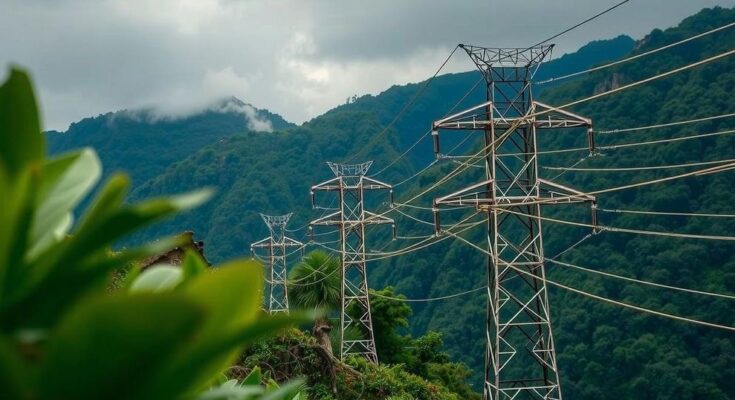Since September 2024, Ecuador has faced up to 14-hour daily power outages, affecting the daily lives of 17 million people. The crisis is linked to climate issues and alleged governmental mismanagement, leading to significant impacts on safety, education, and small business operations as citizens cope with increased costs and losses.
Since mid-September 2024, Ecuador has endured severe power outages lasting up to 14 hours daily, profoundly impacting the daily lives of its 17 million citizens. The government faces criticism for failing to uphold its constitutional duty to guarantee electricity, a service essential to public safety and economic functionality. Residents report perilous conditions due to traffic light outages, damaged appliances from unstable power, and increased electricity bills despite service interruptions. The economic toll is significant, with small businesses suffering substantial losses due to closures during blackouts.
Ecuador’s current energy crisis arises from a convergence of climate fluctuations, governmental mismanagement, and infrastructural neglect. The hydroelectric system, which constitutes the backbone of the nation’s electricity supply, is primarily dependent on consistent rainfall. However, prolonged drought conditions, described by some officials as the worst in six decades, coupled with claims of inadequate investment in alternative energy sources, have exacerbated the situation. Allegations of corruption and influence peddling related to the emergency procurement of a floating power plant further complicate the public’s trust in government responses to this crisis.
In summation, Ecuador’s unrelenting power outages highlight a significant energy crisis intertwined with governmental accountability, climate challenges, and infrastructural inadequacies. The situation not only jeopardizes public safety but also endangers the livelihoods of countless citizens. Addressing these systemic issues requires comprehensive strategies that enhance energy diversification and infrastructure investment while rebuilding public trust in governmental actions to resolve this crisis effectively.
Original Source: globalvoices.org




